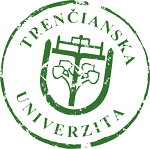ABOUT
Centre for Functional and Surface Functionalized Glass (acronym FunGlass) is newly created (effective from 1 January, 2018) centre of excellence in the framework of Horizon 2020 project – Spreading the excellence and widening participation (H2020-WIDESPREAD-01-2016-2017-TeamingPhase2; Topic WIDESPREAD-01-2016-2017 Teaming Phase 2, project number 739566). Its establishment is based on upgrade of the existing Centre of excellence for ceramics, glass and silicate materials (CEKSiM, created in 2012). The Centre is created in cooperation with the project partners´ institutions and their leading experts in glass science and technology in Europe, namely (in alphabetical order) prof. Bernardo from the Università degli Studi di Padova (Italy), prof. Boccaccini from the Friedrich – Alexander Universität Erlangen-Nürnberg (Germany), prof. Duràn from the Instituto de Ceramica y Vidrio Madrid (Spain), and prof. Wondraczek from the Friedrich-Schiller Universität Jena (Germany). The Centre is located at Alexander Dubček University of Trenčín, Slovakia in a region with high concentration of glass industry (“Euro-region of Glass”), the main producers are RONA a.s. Lednické Rovne, Vetropack a.s. Nemšová, John Manville Slovakia in Trnava, Knauf Insulation in Nová Baňa and a number of glass production facilities at the Czech side of the border .
The aim of the FunGlass is to create an internationally recognized centre of excellence of research in the field of glass-based functional materials. Apart from research activities perfomed directly by glass prodicers, the present CEKSiM is the only research unit in the Slovak Republic dealing with the research and innovation activities related to the needs of local and regional glass industry. The Centre is also active in the field of development and characterization of new types of functional glasses with luminescent properties, replacement of rare earth elements by transition metals in inorganic glass based phosphors, research related to vitrification and immobilization of radioactive waste, and glass-fibres based insulation for nuclear-power plants. Key activities of the Centre include training and applied research to tap into a local know-how in development of the competitive advantage of the region by training skilled research personnel and by pursuing opportunities to establish partnership with regional and EU glass industries and international networking.
Some of the researchers of the Centre are the members of the national and international professional organizations (Slovak Glass Society, Union of Glass Industry of the Slovak republic, Czech Glass Society) and the worldwide glass network ICG – International Commission on Glass comprising 33 national organizations in glass science and technology.







